Dev Anand
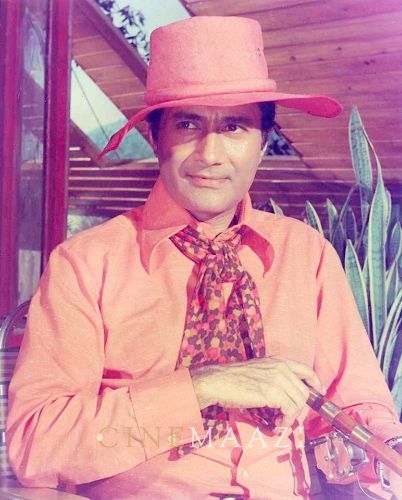
Subscribe to read full article
This section is for paid subscribers only. Our subscription is only $37/- for one full year.
You get unlimited access to all paid section and features on the website with this subscription.
Not ready for a full subscription?
You can access this article for $2 , and have it saved to your account for one year.
- Real Name: Dharamdev Pishorimal Anand
- Born: 26 September, 1923 (Gurdaspur, Punjab, British India)
- Died: 3 December, 2011 (London, England, UK)
- Primary Cinema: Hindi
- Parents: Pishori Lal Anand
- Spouse: Kalpana Kartik
- Children: Suniel Anand, Devina Anand
Characterised by an endearing grin, quirky gait, and staccato dialogue delivery, Dev Anand enjoyed a space all his own in the pantheon of Hindi cinema’s best loved stars. He was part of the triumvirate, including Dilip Kumar and Raj Kapoor, which ruled Hindi films from the early 1950s till the mid-1960s. Celebrated for his debonair, romantic onscreen persona, Dev Anand was dubbed the ‘evergreen star’ for his youthful charm which endured over the decades. Actor, writer, producer and director, he is regarded as one of the key stars in the history of Indian cinema. Making his acting debut with Prabhat Films’ Hum Ek Hain (1946), he is known for hit films such as Ziddi (1948), House No. 44 (1955), Pocket Maar (1956), Munimji (1955), Funtoosh (1956), C.I.D. (1956), Paying Guest (1957), and Do Sitare (1951), among others. Anand won two Filmfare Awards - for his performances in the films Kala Paani (1958) and Navketan Films' Guide (1965) respectively. In a career spanning more than 65 years, he played the solo hero in more than 90 films. He launched his own production company Navketan Films along with his elder brother, Chetan Anand, in 1949. Dev Anand’s contribution to cinema was honoured by the Government of India which conferred on him the Padma Bhushan in 2001 and the Dadasaheb Phalke Award in 2002. Eventually, his creative sensibilities saw him writing and directing his own films. Dev Anand remains a star whose style found huge favour with audiences, and was widely imitated.
Born Dharamdev Pishorimal Anand on 26 September, 1923 in Gurdaspur, Punjab, to an advocate father Pishorimal, his siblings were Chetan Anand, Manmohan Anand, Vijay Anand, and Sheela Anand. Graduating from Government College, Lahore, British India, he left his hometown to work in the Military Censor Office at Churchgate, Bombay. His journey in films began when he was offered a role in the 1946 Prabhat Films’ production Hum Ek Hain. He played a Hindu boy and was paired opposite Kamala Kotnis in the film which revolved around Hindu-Muslim unity. The film marked the start of his friendship with Guru Dutt.
Dev Anand was introduced as a leading man by Ashok Kumar in the Bombay Talkies’ production Ziddi (1948), which he starred in opposite Kamini Kaushal. An instant hit, there was no looking back for him thereafter. He went on to feature in approximately 110 films, spanning from 1946 to 2005. The very next year after the success of Ziddi, Anand decided to set up a film production company. Named Navketan Films after his elder brother Chetan Anand’s son Ketan, the company went on to produce several films over the decades.
Anand’s success grew with his successive films. Directed by Guru Dutt in the crime thriller, Baazi (1951), the film started the trend of urban crime films in Hindi cinema in the 1950s. It was followed by films such as Jaal (1952), House No. 44 (1955), Munimji (1955), Funtoosh (1956), Pocket Maar (1956), C.I.D. (1956) and Paying Guest (1957). From mysteries to light comedy love stories and also topics of social relevance, Anand’s films in the 1950s presented a range of genres. He did not shy away from playing characters with shades of grey either, such as the smuggler in Jaal, a gangster on the run in Dushman (1957), and a black-marketer in Kala Bazar (1960). Occasionally he also featured in films of a tragic nature—and to successful results at that—in films such as Pocket Maar (1956), Kala Pani (1958), Bombai Ka Babu (1960) and Sharabi (1964).
Dev Anand’s films in the 1960s contributed immensely to his acquiring a romantic image. Manzil and Tere Ghar Ke Samne with Nutan, Kinare Kinare with Meena Kumari, Maya with Mala Sinha, Asli-Naqli with Sadhana, Jab Pyar Kisi Se Hota Hai, Mahal with Asha Parekh and Teen Deviyaan opposite three heroines Kalpana, Simi Garewal and Nanda, reinforced his charmer credentials onscreen. He had already formed a successful pairing with Kalpana Kartik (Mona Singha) who had made her debut in Baazi. Anand went on to star opposite Kartik in hit films such as Aandhiyan (1952), Taxi Driver (1954), House No. 44 (1955) and Nau Do Gyarah (1957).
His name is synonymous with a range of romantic songs essayed onscreen. These include the Rafi-Geeta Dutt number Aankho hi aankhon mei ishara ho gaya, the Rafi-Shamshad Begum melody O leke pehla pehla pyar, Achcha ji mei hari chalo maan jao na rendered by Rafi and Asha Bhosle, Rafi’s Hum bekhudi mei tum ko pukarey chaley gaye. Other key numbers picturised on him onscreen include Jeevan ke safar mei rahi miltey hei bichhad janey ko, Mei zindagi ka saath nibhata chala gaya, and Phoolon ke rang se dil ki kalam se.
Among Anand’s notable films is the box office success Kala Pani (1958) opposite Madhubala and Nalini Jaywant. His performance, as the son who is willing to go to any lengths to clear his framed father's name, won him his first Filmfare award for Best Actor for the film. Hum Dono (1961) which he produced and acted in, in a double role, is another standout performance. A box office hit with memorable music, the film depicted Anand as a young lover who joins the army in frustration over being shunned by the father of his love Meeta (Sadhana). In the same film, he also played Major Varma, whom he runs into in the army and forms a deep friendship with. Guide, his first colour film, saw him play the chatty guide Raju, who supports Rosy (Waheeda Rehman) in her quest for freedom. The role included shades of grey, as he himself exploits her for his personal gains. Anand’s performance as a man struggling with love, shame and salvation was again of an award-winning standard.
Striking out as a director with the espionage drama Prem Pujari (1970), he tasted success with Hare Rama Hare Krishna (1971). Shot largely in Nepal, the film revolved around the hippie culture prevalent at the time, and launched his find Zeenat Aman to instant stardom. In the years to come, he would direct several films on topical subjects, that were largely unsuccessful at the box office.
The 1970s also saw Anand bounce back as an actor with Banarasi Babu (1973). Well into his fifties, he featured opposite young heroines of the day such as Sharmila Tagore, Yogeeta Bali, Raakhee, and Parveen Babi in films such as Chhupa Rustam (1973), Amir Garib (1974), Heera Panna (1973), Warrant (1975), Darling Darling (1977), Bullet (1976), and Des Pardes (1978). In the decades that followed he continued to act in films such Hum Naujawan (1985), Lashkar (1989), Awwal Number (1990), Sau Crore (1991), and Chargesheet (2011). Anand also starred in English films such as The Evil Within (1970), paired opposite Vietnamese actress Kieu Chinh and Zeenat Aman, and the English version of Guide (1965), which he co-produced with Nobel Laureate Pearl S Buck.
As head of his film production company Navketan International Films, Anand introduced a wealth of talent to the film industry by way of actors, directors, music composers and cinematographers. He also headed one of the leading film sound post-production facilities in India - Anand Recording Studios, which completed the mixing/ surround mixing for more than 3,000 Indian feature films.
Off screen Dev Anand was politically active and is known to have led a group of film personalities to stand up against the internal Emergency in 1975. He also formed the National Party of India, which he later dissolved.
Having married his co-star Kalpana Kartik (Mona Singha) in a quiet ceremony in 1954, the couple had a son, Suneil Anand and a daughter, Devina. In the year 1974, he launched his son in the Kramer vs. Kramer-inspired film Anand Aur Anand (1984), which Anand produced and directed himself.
In September 2007, his autobiography Romancing with Life was released by Prime Minister Dr Manmohan Singh. It was, in Anand’s own words, “about 62 years of my struggles ... (about) my joys, my sorrows, my highs and my lows. It is an honest depiction of a man with all his strengths and weaknesses.”
Dev Anand passed away in his Washington Mayfair Hotel room in London at the age of 88 on 3 December, 2011 of cardiac arrest. His demise came just two months after the release of his last film Chargesheet, which he had directed and produced. His eternal youthfulness and optimism had its roots in his remarkable ability to live in the present and look to the future, preferring to never hark back to the past.
-
Filmography (114)
SortRole
-

Mr. Prime Minister 2005
-
Love at Times Square 2003
-
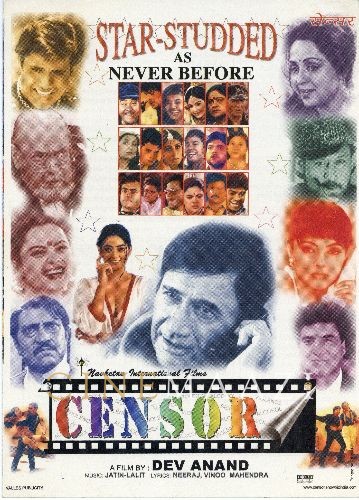
Censor 2001
-
Main Solah Baras Ki 1998
-
Gangster 1995
-

Sau Crore 1991
-

Awwal Number 1990
-
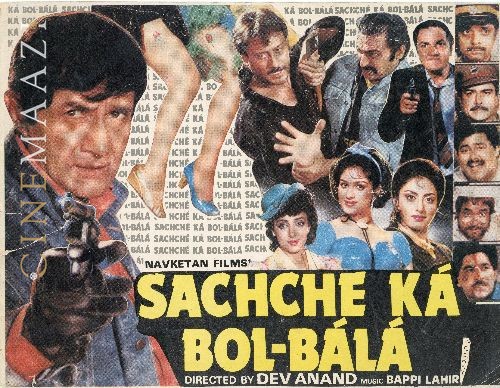
Sachche Ka Bol Bala 1989
-

Lashkar 1989
-

Hum Naujawan 1985
-
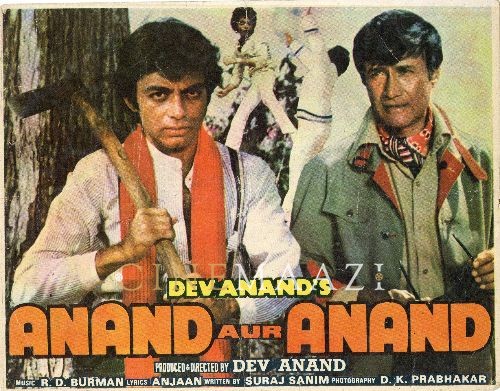
Anand Aur Anand 1984
-



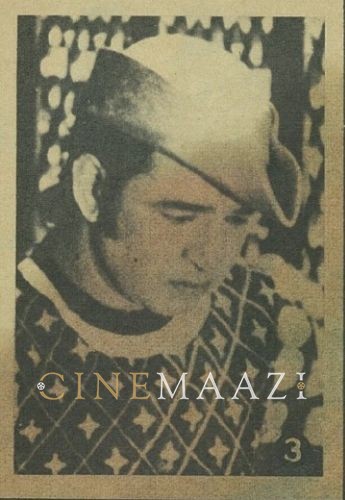
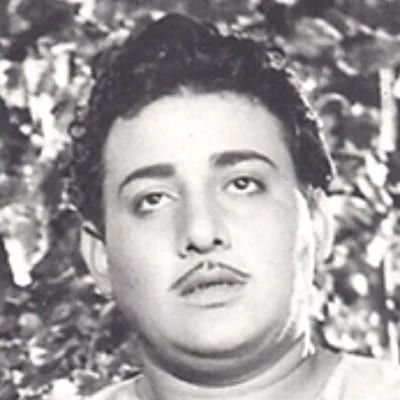
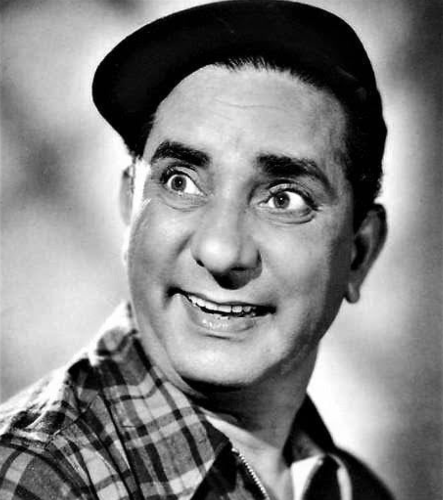
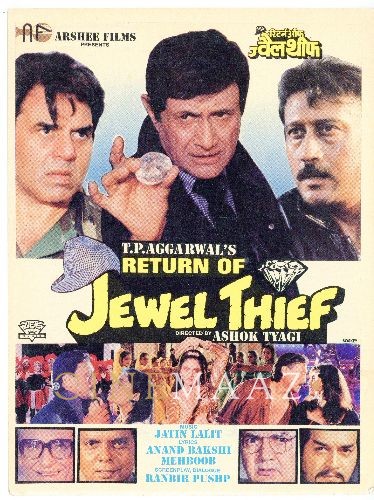

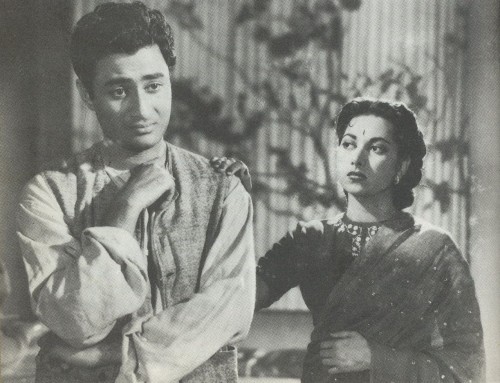

.jpg)



